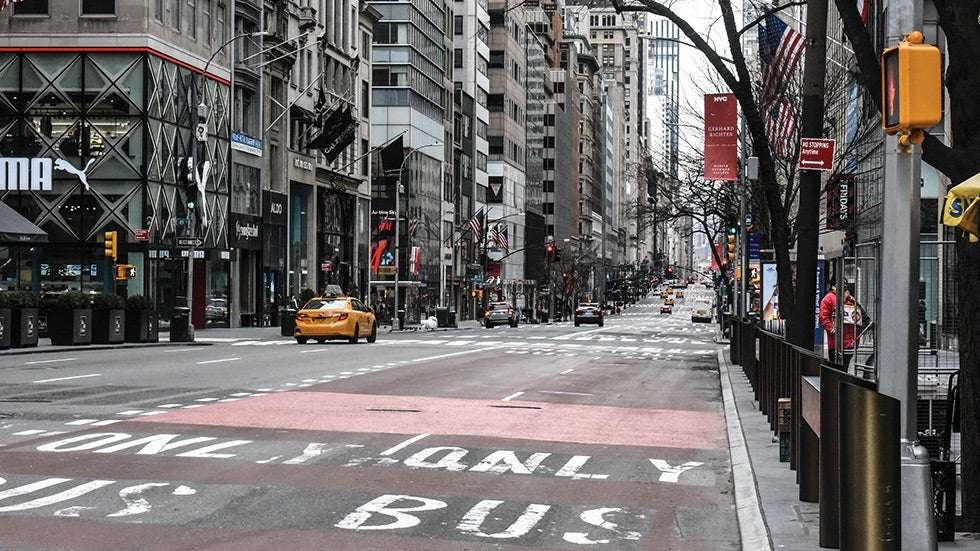The U.S. could have avoided nearly 36,000 deaths caused by the coronavirus through early May if stay-at-home orders and other social distancing restrictions were implemented just one week earlier, a new study from Columbia University researchers shows.
The study, which focused on transmission in metropolitan areas, found that social distancing measures adopted throughout the nation after March 15 "effectively reduced rates of COVID-19 transmission."
The researchers estimated that had the measures been instituted just one week earlier that the U.S. may have avoided more than 700,000 confirmed cases of the virus and as many as 35,927 deaths that it caused.
The researchers also estimated that if lockdown measures were instituted as early as March 1, approximately 54,000 fewer people would have died by May 3.
“It’s a big, big difference. That small moment in time, catching it in that growth phase, is incredibly critical in reducing the number of deaths,” Jeffrey Shaman, an epidemiologist at Columbia and the leader of the research team, told The New York Times, which first reported on the study.
The study's authors said that their findings were based on counterfactual simulations in which the sequence of transmission rates between March 15 and May 3 were shifted back one and two weeks, respectively. The models they used assessed how social distancing slowed the spread of the disease after mid-March and looked into how lockdown measures could have impacted the spread of the disease earlier.
The authors acknowledged that counterfactual experiments are based on hypothetical assumptions and that implementing quarantine measures is complicated by general uncertainty and economic concerns, among other things. But they emphasized that the findings highlight "the dramatic effect that early, coordinated interventions have on the COVID-19 pandemic."
They also said that "rapid response" is critical to avoid new waves of infections as states throughout the U.S. begin to gradually reopen.
As of Thursday morning, the U.S. had reported more than 1.5 million confirmed cases of the coronavirus and roughly 93,000 deaths caused by it, according to data compiled by Johns Hopkins University.
The study comes as President Trump Donald John TrumpTrump taps Brooke Rollins as acting domestic policy chief Trump takes pandemic fight to Michigan Trump to celebrate Memorial Day at Baltimore's Fort McHenry MORE and his administration have faced scrutiny throughout the outbreak from Democratic lawmakers and the leaders of some states over the initial handling of the pandemic. Trump in February downplayed the severity of the disease, suggesting that it would disappear like a "miracle."
Trump has repeatedly defended his administration's response, often touting his move to restrict travel from China in January as a move that slowed the disease's spread. After the study's release, the White House renewed its criticism of China and the World Health Organization (WHO), claiming that a failure to be transparent in the outbreak's early stages cost lives.

thebadbino on May 21st, 2020 at 16:29 UTC »
Cuomo not sending COVID + patients back to nursing home’s also could have saved a ton of lives.
ManOfLaBook on May 21st, 2020 at 13:55 UTC »
Serious question: Could have saved or delayed?
_SCHULTZY_ on May 21st, 2020 at 13:42 UTC »
I wonder how many lives would have been saved by the Surgeon General not spending an entire month telling the country that masks and face coverings do absolutely nothing?